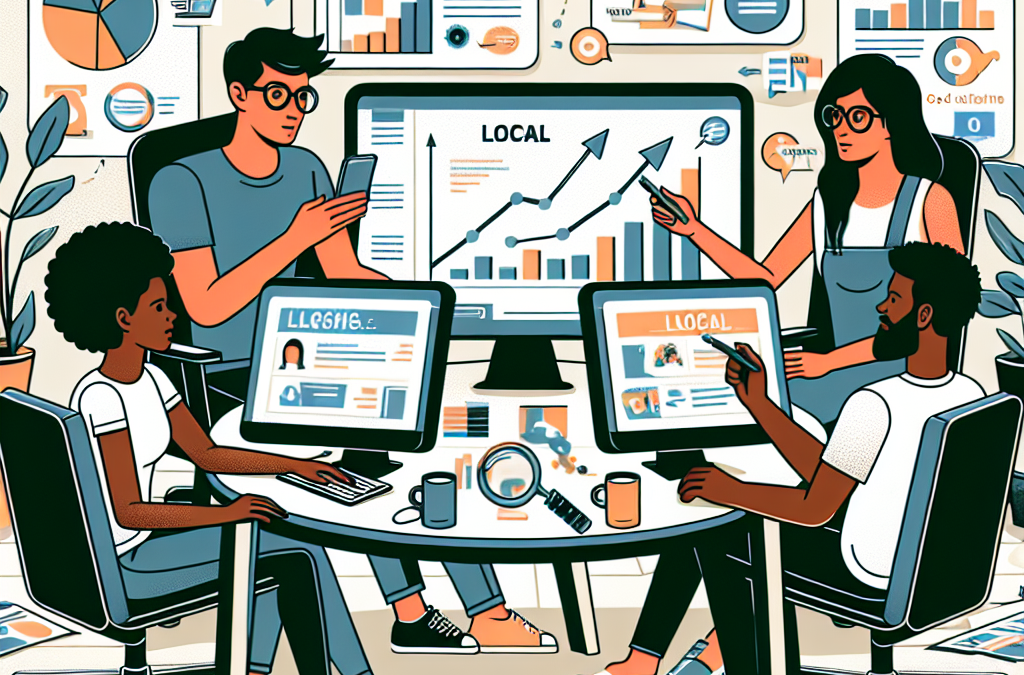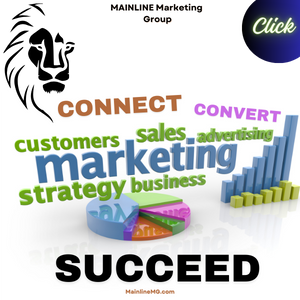1. Understanding Your Local Audience
Identifying Your Target Demographic
First things first, it’s super crucial to know who you’re trying to reach with your local events. Dive into understanding the demographics of your community. Who lives there? What are their interests? This will give you a clearer picture of how to craft your event messaging.
One way I like to do this is by checking out local social media groups or forums where people discuss community events. You can pick up on the lingo, trends, and what folks are passionate about. It’s like having a cheat sheet!
Additionally, I often pull data from tools like Google Analytics to get insights into the types of people visiting my event pages. This data is golden for tailoring my marketing strategies.
Analyzing Local Search Trends
Next, let’s talk about local search trends. What phrases and keywords are people typing into search engines when looking for events like yours? Using tools like Google Trends or even basic keyword planners can help you figure this out.
I’ll often create a list of relevant keywords and phrases that not only relate to my events but are also used commonly in my area. It’s all about making sure that when someone searches for something related to your event, your name pops up!
Don’t forget about seasonal trends too. If your event coincides with a major holiday or local festival, make sure to leverage that in your SEO strategy. Timing can make a huge difference!
Creating Buyer Personas
Crafting a buyer persona is something I really love to do. It brings everything to life! Think about the details: age, interests, hobbies, and even pain points. What are they looking for in a local event? This persona will help you connect with your audience on a personal level.
Try to visualize your ideal attendee. Picture them breaking their routine to attend your event. What interactions would they enjoy? How will they hear about it? The more detail you can add, the better your marketing will resonate.
Lastly, I recommend creating a quirky name for your persona to make it fun. Let’s say “Festival Fiona” likes outdoor music events and enjoys local craft beer. This name not only makes it relatable but is easy to remember whenever I create content or marketing material.
2. Optimizing Your Event Website
Using Local Keywords Naturally
Once you’ve figured out who your audience is, it’s time to optimize your website for SEO. Start by sprinkling those local keywords throughout your site—but be careful not to overdo it. We want it to be natural, not robotic!
I like to include local landmarks, city names, and even slang in my content to make it more engaging. The goal is for someone searching for events to feel like your website belongs to their community.
Don’t forget about meta tags! Ensure that your page titles and descriptions include these keywords as well. It’s a simple way to give search engines the necessary context about your event.
Create a Blog for Your Event
Starting a blog on your event website can be a game-changer. I often write posts about related topics, like local attractions, behind-the-scenes peeks at event planning, or profiles on performers and attendees. This can drive traffic to your site by attracting those interested in your theme.
By updating your blog regularly with fresh content, you also become more appealing to search engines. It’s a win-win! Plus, the more you can engage your audience, the better they’ll remember you when it’s time for your event.
Be sure to share your blog posts on social media. You’ll be surprised how much it boosts your visibility and draws in event-goers. Remember to engage back, ask for comments, and create conversations!
Mobile Optimization
Let’s face it: people love their phones. If your event website isn’t mobile-friendly, you may as well be handing out flyers in a snowstorm. I found that once I optimized my site for mobile, my visitor engagement skyrocketed.
Simply make sure that your site is responsive, meaning it adjusts beautifully to any screen size. Images should be clear, and text should be easy to read on smaller screens. Test it out yourself to see if you’d want to browse a site that way.
Moreover, integrating an easy-to-use event ticketing system that works on mobile saves time and offers convenience for your attendees. Trust me; this is a significant factor in driving ticket sales!
3. Leveraging Local Listings and Directories
Claiming Your Google Business Profile
If you haven’t claimed your Google Business Profile yet, it’s time to do it! This free tool improves your local SEO immensely. I remember the first time I did it, and my visibility just shot up! It makes you more discoverable in local searches.
Make sure to fill out all sections completely: location, contact info, event times, and websites. Pictures go a long way as well. Show potential attendees what to expect from your event in colorful, engaging visuals.
Don’t forget to encourage users to leave reviews too. Positive testimonials not only draw attention but also build trust in your brand. Every little bit helps in making your event look appealing!
Getting Listed in Local Event Directories
Another fantastic way to expand your reach is by getting listed in local event directories. There are a ton out there like Eventbrite, Meetup, and even local newspaper websites. I check them regularly to see where I can add my events.
Listing your events in these directories not only helps with local SEO but also places your event in front of audiences who actively seek things to do in their area. It’s like putting up a billboard that attracts people interested in local happenings!
Make sure to provide a compelling description and link back to your main website for more information. The synergy here can really enhance your event’s visibility.
Social Media Event Pages
Creating event pages on social media is another great avenue I’ve exploited. If you have a Facebook page for your event, take full advantage of it! Set up an event, invite people, and encourage them to share. The social sharing can work wonders!
Interestingly, the engagement on these platforms often helps in boosting organic search rankings. When people interact with your event page, it shows search engines that it’s something worth promoting.
Remember, keep your posts engaging—use images, ask questions, and maybe even run contests for free tickets to snag attention. The more interaction, the better your reach!
4. Utilizing Content Marketing for Your Event
Creating Engaging Visual Content
When it comes to promoting local events, visuals are half the battle. I love creating graphics and videos that showcase what’s happening, which give potential attendees a taste of what they can expect. Think teaser videos, interviews with performers, or highlights from past events.
Visual content is known to drive more engagement. People are more likely to share an eye-catching photo or fun highlights reel than a block of text. Plus, don’t forget to tag local photographers who might want to collaborate!
Using platforms like Instagram and TikTok where visuals reign supreme can significantly boost your reach. People love to see the vibrant vibe of an event before they decide to attend!
Leveraging User-Generated Content
User-generated content can be a goldmine! Encourage your event attendees to share their experiences online by tagging you. I always create a specific hashtag for my events so I can track what’s being shared easily.
Not only does this show a genuine community connection, but it also helps build excitement for future events. I often share their posts on my channels. It’s a shoutout that attendees appreciate and can spark more sharing.
It’s all about creating a buzz. When potential attendees see happy faces and fun memories from others, they’re more likely to join in next time around!
Interactive Content
Event quizzes, polls, or fun competitions are a great way to engage your audience. I’ve created interactive posts where people could vote on what food vendors they’d love to see or what themes they’d prefer for the next event.
This kind of engagement not only builds anticipation but also gives you direct feedback on your audience’s preferences. It’s like polling your community while engaging them at the same time!
Plus, sharing the results toward the end can keep the excitement rolling. It’s about creating a two-way dialogue that makes your audience feel involved and connected to your event.
5. Measuring Success and Adjusting Strategies
Tracking Event Metrics
After your local event, the real work begins—analyzing metrics! I always set aside time to examine how everything performed. Google Analytics is my go-to for figuring out how visitors interacted with my pages leading up to the event.
Look for patterns: Where did most traffic come from? What keywords were they using? This helps identify both successes and areas to improve for next time. Plenty of metrics can give great insights, including ticket sales and social media engagement stats.
The information you gather can guide adjustments to your future events—whether it’s optimizing your marketing strategies or choosing different venues based on what worked best.
Learning from Feedback
Don’t shy away from asking your attendees for feedback! I usually send out a quick survey post-event to gather thoughts about what they loved, what they didn’t, and what could be improved. It’s an immediate way to gain insights straight from those who experienced it.
Encourage honesty and assure them their feedback is anonymous (except if they want to be part of a raffle for free tickets!). This not only improves future events but also shows that you care about your attendees’ experiences.
Implementing suggestions not only enhances your events but can also create loyal attendees who feel their voices matter. It’s a relationship worth nurturing!
Adjusting Your SEO Strategy
Finally, based on everything you’ve learned, it’s important to tweak your SEO strategy for your next round of promotions. If specific keywords didn’t attract much traffic, experiment with others. SEO is a continuous learning process, and adapting is key to staying relevant.
By analyzing what worked and what didn’t, I’m often able to discover fresh takes on themes and keywords that resonate better with my local audience. It allows me to connect deeper with my community.
Remember, every event is a chance to build your marketing knowledge. Continuously refine your strategy and stay in tune with your audience’s ever-changing preferences!
FAQs
What is the most important aspect of promoting local events with SEO?
The most crucial aspect is understanding your local audience and optimizing your website to meet their needs. Knowing who you’re targeting helps tailor your messaging effectively.
How can I find the right keywords for my local event?
You can use tools like Google Trends and keyword planners to discover what phrases locals use when searching for events. This can greatly enhance your website’s visibility.
Why should I create a blog for my event?
A blog helps attract more visitors to your website by providing engaging content. It also improves your SEO and helps establish a connection with potential attendees through storytelling.
How does social media affect local event promotion?
Social media enhances visibility and engagement significantly. Creating event pages and sharing updates helps build excitement and allows interaction with potential attendees.
What should I do after my event to improve future promotions?
After the event, analyze your metrics, gather feedback from attendees, and adjust your SEO strategy based on what worked and what didn’t. Continuous improvement is key!


